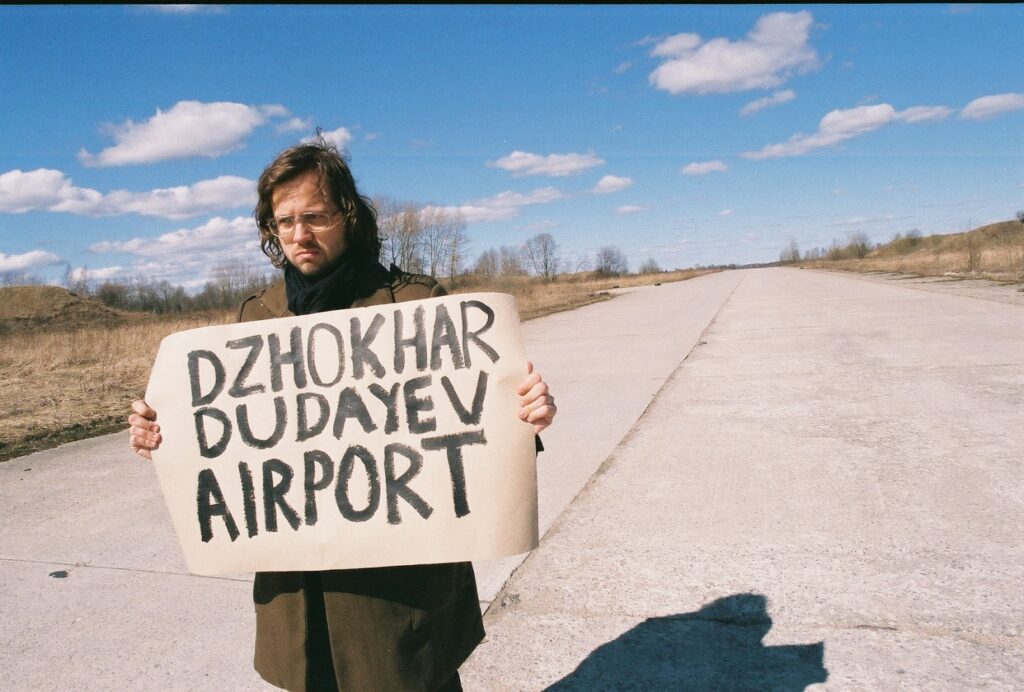
Tanel Rander (1980) is an artist, curator, and writer, whose creative work includes experimental practices based in language and psychology, and critical study of Eastern-European discourse and decolonisation. The focus of Rander’s work is the tension between subjectivity and the modifying pressure it experiences between interior and exterior.
One of Rander’s areas of focus is psycho-geography; in his work however, Rander removed the existing contextual specifics of the term, believing that identifying with the subjectivity of the western metropolis, in a post-socialist periphery, brings countless problems. Since 2010 his work has been exploratory and theoretical, focused on the discourse of Eastern-Europe, through the lens of decolonisation. Rander’s work has had three solo exhibitions relating to this area of study: ‘Decolonise This!’ (2012, Y-Gallery, Tartu), ‘No Borders – No Difference?’ (2013, Tartu Art House) and ‘The Frontline East (2015, LCCA, Riga). The solo exhibition ‘Third Way’ (2016, Tallinn City Gallery) can be taken as the mid-point of this six year survey. For the exhibition Rander considered the genealogy of institutional contemporary art and presented his view using a hybrid of a guillotine and K. Malevich’s Black Square as the central figure. The effect of the guillotine – as Rander puts it – lies in the cultural, yet not principal, revolution of Eastern-Europe in 1989, during which bronze heads fell instead of human heads. Among other things, Rander explores ways to bring those fallen heads of socialist monumental art back to a contemporary art context, retaining but re-contextualising their original significance. Third Way is an on-going process, which will develop according to the socio-political situation in Eastern-Europe and its accompanying mainstream discourse.
During 2017 and 2018 Rander will execute a collective survey in the border-town of Valga/Valka between Latvia and Estonia, titled ‘100 poplars’, paraphrasing the campaign ‘100 oaks’ run by the government of the Estonian Republic. The project focuses on national identity between borders, and asks if and how this is expressed in the nation-state of a common border-town.
Tanel Rander has collaborated with several artists and groups, including a long-term collaboration with language scientist and writer Erkki Luuk, resulting in the exhibitions ‘Kesktalvine hnott’ (2010, Tallinn City Gallery) and ‘Uridaadi lõpp’ (2010, Y-Gallery, Tartu), the book Tammeöö (2012) and a number of public performances. Rander has also worked with the creative collective 10x10m for the happening ‘Human Forestry’ (2012, Kiasma, Helsinki) and the performance ‘Man Overboard’ (2013, Kanuti Gildi Saal). Together with Karl Saks and Hendrik Kaljujärv he co-directed the theatre performance ‘Oh My God!’ (2013, Von Krahl Theater). In 2016 he published a co-edited text collection ‘Archives and Disobedience. Changing Tactics of Visual Culture in Eastern Europe’ with Margaret Tali.
Rander has organised psycho-geographical expeditions, symposiums and seminars independently and in co-operation with different institutions in Estonia and elsewhere. In 2014 he curated an exhibition ‘Waiting for the Grey Ship’ (Y-Gallery, Tartu), which dealt with the fear that broke out during the war in Ukraine. In 2016 he curated an international group exhibition ‘Promised Light’ (Tartu Art House and Noorus gallery), which criticised knowledge as part of the enlightening mission of western modernity.
During 2017-2018, Rander was pursuing collective research in the border town of Valga/Valka, which concentrated on borders and the functionality of a shared town between two countries, Estonia and Latvia. The project was titled ‘A Hundred Poplars’, during which Rander organised and curated exhibitions, residencies, and initiated the independent exhibition space ‘Brivibas Galerija’. Brivibas means freedom in Latvian, and it derives from the central idea of the project – the joint town of Valgka.
‘A Hundred Poplars’ has developed into a larger collaboration project titled ‘Trans-bordering Laboratory’, which deals with a Europe-wide network for border towns, to share experiences and knowledge, but also to create opportunities for mobility between different border contexts. The partners of this project are Michael Kurzwelly, who runs Slubfurt, and Nowa Amerika initiatives between the Germany-Poland border, and Miha Kosovel, who manages the self-initiated cultural centre Carinamica on the Slovenia-Italy border.
Tanel Rander graduated the Institute of Law at the University of Tartu (BA, 2005) and worked as a lawyer and attorney. In 2010 he graduated in interdisciplinary art at the Estonian Academy of Arts (MA) and began his doctoral studies. His literary work has been published under different pseudonyms including chaneldior, chaneld:or, c:, Chanel Rantie, etc. Tanel Rander is one of the laureates for the artist’s salary 2024–2026.